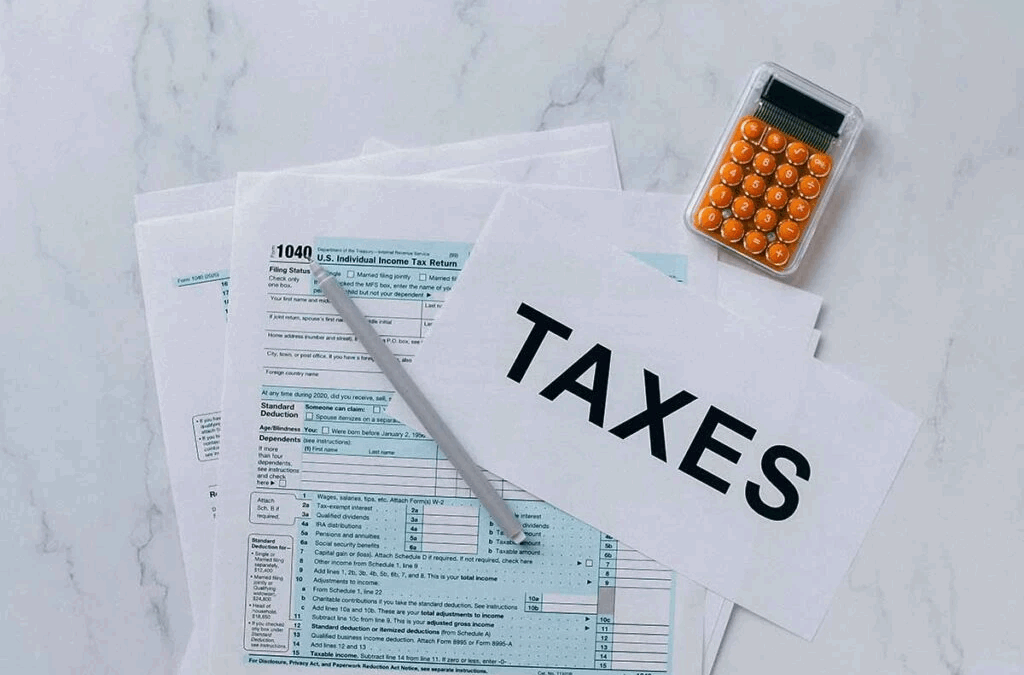— And How I Can Help You Stay on Track
When you’re named the executor of an estate, you’re not just stepping into a legal role—you’re stepping into a logistical and emotional journey that can be overwhelming without the right support. One important task that many people don’t anticipate? Filing the final tax return for the person who passed away.
As a real estate professional who specializes in helping families navigate probate, I’ve supported many clients through this process. And while I’m not a tax advisor, I work closely with professionals who are—and I can help you understand what’s involved, connect with the right people, and make sure nothing slips through the cracks when it comes to managing the property and financial side of the estate.
Let’s break it down together.
What is a Final Tax Return?
The final return is the deceased person’s last personal income tax return—often referred to as their “1040”. This return covers the period from the start of the tax year until the date of death.
If the person earned income before passing—through a job, retirement accounts, rental properties, etc.—it needs to be reported. This includes:
- Wages or salary
- Social Security income
- Dividends, interest, or capital gains
- Rental income or business income
- Any other taxable income
As the executor, you’re responsible for ensuring this return is filed and any taxes owed are paid—before distributing assets to heirs.
Who Files the Return?
You do—as the executor.
Even if someone else prepared the taxes in the past, the IRS now looks to you to handle final matters. If you’re working with a CPA or tax preparer (and I recommend you do), they’ll guide you through the process. But the responsibility for making sure it gets done—falls on your shoulders.
That’s why it’s critical to keep good records and gather financial documents early on—and I can help you with that.
What Documents Will You Need?
To file the final return, you’ll need:
- A certified copy of the death certificate
- The deceased’s Social Security number
- Income records (W-2s, 1099s, bank statements)
- Expense records (medical bills, funeral expenses)
- Documentation of any assets sold or transferred
- Information on the estate’s bank account (if established)
💡 Where I Come In:
When I work with probate clients, I help them track down key property-related documents, values, and expenses. If the deceased owned real estate, I can provide:
- Property valuations (for date-of-death and current market value)
- Repair and maintenance records
- Sale proceeds for any property transactions
All of this may be relevant for the final return or for an estate tax return, if one is required.
When is the Deadline?
The final individual income tax return is due by April 15 of the year following the person’s death—just like a regular return. But depending on the situation, you may also need to file:
- IRS Form 1041 for estate income (if the estate earns more than $600 after death)
- State income tax return (if applicable)
- Estate tax return (Form 706) if the estate exceeds federal exemption thresholds
If this is starting to sound complicated, don’t worry—I’m here to help you get the right professionals involved at the right time.
How I Support You Through This
As your real estate agent and probate partner, I help:
- Keep you organized: So you’re not scrambling to find paperwork or values at tax time
- Connect you to local CPAs and estate planning attorneys who know probate inside and out
- Document and report real estate-related information clearly and accurately for your preparer
- Coordinate property sale timelines to avoid tax complications from capital gains or estate distribution errors
I’ve worked with dozens of families through probate and know how complex it can be. That’s why I position myself not just as your listing agent, but as a resource to help lighten the load.
Final Thoughts
Filing a final tax return isn’t something most people feel prepared to do. But with the right guidance and support, it becomes one more manageable step in closing the estate with care and confidence.
If you’re just starting the probate process—or you’re already knee-deep in paperwork—please reach out. I’ll walk you through what’s needed for any real estate assets, help you get organized, and connect you with trusted professionals who can take care of the tax side.
You don’t have to know everything. You just need the right people in your corner.
Let’s make probate easier, one step at a time.

